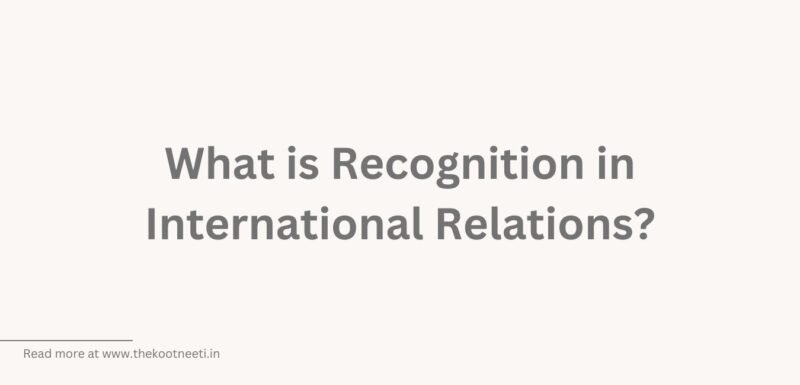What is Recognition in International Relations?

Recognition in international relations refers to the formal acknowledgement by one state of the sovereignty and independence of another state. Recognition is an important element of international law, as it establishes the legal status of a state and its government and allows it to participate in the international community.
States may recognize other states for a variety of reasons, including political, economic, and strategic considerations. Recognition is often seen as a way to establish or maintain relations with other states, and it can be a key factor in determining the level of cooperation and interaction between states.
Recognition can be granted by individual states or by international organizations, such as the United Nations (UN). The UN plays a key role in the process of recognition, as it requires that states be recognized by a majority of its member states in order to become a member of the organization.
However, recognition is not always automatic or straightforward, and states may disagree over whether to recognize other states or governments. Disputes over recognition can lead to conflicts and tensions in international relations, and can have significant implications for the international community.


















